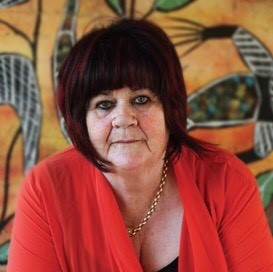
“The current wait time in the ACT for allocation of priority (ie urgent) public housing, is 12 months and for people not eligible for priority housing the average wait for public housing is four years,” writes indigenous leader JULIE TONGS.
I HAVE provided the ACT government with draft terms of reference for a Royal Commission into the disproportionate levels of contact which Aboriginal peoples in the ACT have with the justice system and are incarcerated.

They include, among a wide range of issues to be considered by the proposed Royal Commission, a specific reference to the standard and appropriateness of housing occupied by Aboriginal peoples living in Canberra.
The terms of reference were drafted by Ken Cush and Associates, who are generously supporting the Aboriginal community with advice and services, based on advice provided by a group of senior Aboriginal leaders.
As with so many measures of disadvantage Aboriginal and Torres Strait Islander peoples in the ACT fare poorly in any comparison of any aspect of housing whether it be in relation to home ownership, homelessness or the adequacy, standard or suitability of the housing they occupy.
It is axiomatic that any inquiry into the reasons for the over-representation of Aboriginal peoples in contact with the justice system must include a detailed audit and investigation of the range of social factors, including housing and homelessness, which may lead to such contact and ultimately imprisonment.
It was, therefore, coincidental but nevertheless deeply concerning to learn of the range of issues which the Official Visitor for Homelessness, Mr Simon Rosenberg included in his first formal report as Official Visitor to the Minister for Homelessness and Housing Services, Ms Rebecca Vassarotti.
Mr Rosenberg advised community representatives at a meeting he recently addressed that the range of serious concerns which he reported to the Minister included:
- The long wait for public housing.
- The need for increased cross-sector work is for example disability, mental health and AOD.
- Multiple complaints that service users are frustrated because of the number of women who cannot get custody of their children because of the length of the public housing waiting list.
- Concerns that people with alcohol and other drug dependencies who are evicted from rehabilitation services because, for example, of a relapse, are often in effect evicted into homelessness.
I understand that the current wait time in the ACT for allocation of priority (ie urgent) public housing, is 12 months and for people not eligible for priority housing the average wait for public housing is four years.
I was particularly distressed to learn from Mr Rosenberg’s report that there are women in Canberra, many of whom I have no doubt are Aboriginal, who have been separated from their children and while eligible to be reunited with them are prevented from resuming custody because there is simply no available public housing for them to access. In my opinion this is not only shameful, it is cruel.
An issue which I am not aware that the Official Visitor for Homelessness included in his report to the minister, but which is of utmost concern to me, is the absence of a clear and reliable pathway for detainees at the AMC into secure housing upon release from prison.
I am aware of inmates who have, for example, been unable to take advantage of a grant of parole and are forced to remain in detention because they do not have a secure place, outside prison, in which to live.
I have been calling on the ACT government repeatedly over the last five to six years to facilitate the establishment of an Aboriginal housing corporation and an indigenous-specific housing policy in order that some of the most pressing housing-related issues facing Aboriginal and Torres Strait Islander people might be addressed, but to no avail.
The government has not developed a genuine Aboriginal housing policy or empowered the Aboriginal community to work in partnership with it to meet the needs of all Canberrans, Aboriginal or otherwise, dependent on public housing support.
It has instead, in the decade 2010 to 2020 (during which period Canberra’s population grew by 63,395 people), actually reduced the number of units of public housing in Canberra by a total of 78.
It is notable that the social-housing sector had fared little better than public housing with the ACT government imposing savage cuts on CHC Community Housing, the major social housing provider in the ACT, to the point it is barely able to function.
I have not been successful in locating a copy of Mr Rosenberg’s report and would be grateful if Minister Vassarotti would make it available. I also urge her to take control of Housing ACT and put an end to the unceasing difficulty which poorer Canberrans experience in seeking to access, let alone enjoy, one of the most basic and fundamental human rights – the right to housing.
Julie Tongs is the CEO of Winnunga Nimmityjah Aboriginal Health and Community Services.
Who can be trusted?
In a world of spin and confusion, there’s never been a more important time to support independent journalism in Canberra.
If you trust our work online and want to enforce the power of independent voices, I invite you to make a small contribution.
Every dollar of support is invested back into our journalism to help keep citynews.com.au strong and free.
Thank you,
Ian Meikle, editor





Leave a Reply